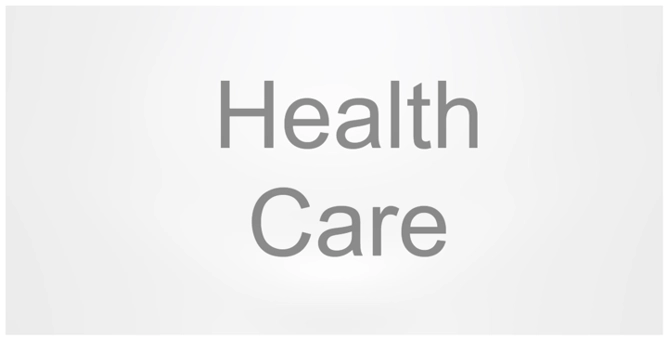
Health Insurance for Expats in Germany
Health Insurance for Expats in Germany
The Ultimate Guide to Health Care in Germany for Expats and Foreigners
Introduction
Are you feeling overwhelmed by the complexities of the German health care system? You’re not alone. Many expats arrive in Germany, excited for new opportunities, only to find themselves tangled in a web of insurance options, paperwork, and unfamiliar terminology. Questions like “Is health insurance really mandatory?” or “Will I be able to access the care I need if I don’t speak German?” are common—and completely valid.
At liveingermany.de, we’ve helped thousands of expats navigate these challenges with clear, practical resources. Our expertise is grounded in direct experience, up-to-date research, and a commitment to making your transition to life in Germany as smooth as possible. In this comprehensive guide, you’ll discover everything you need to know about health care in Germany as an expat, including the latest changes for 2025, actionable tips, and curated resources to support your journey.
Expat Challenges and Context
Moving to Germany is exciting, but the health care system can be intimidating—especially if you’re used to a different model. For many expats, the realization that health insurance is not just recommended but legally required is a shock. Without it, you risk hefty out-of-pocket costs and even jeopardize your residence status.
Imagine arriving in Germany and falling ill, only to discover that without proof of insurance, even non-emergency treatment might be denied. Or picture a family with children, unsure whether their dependents are covered. These are real-life scenarios that expats face daily.
Germany’s health care system is robust, based on solidarity and universal access. Health insurance is mandatory for everyone—expats, students, freelancers, and employees alike (Germany Visa Health Insurance, Expatica: Guide to German Health Insurance). Understanding your options and obligations is crucial, especially as regulations evolve.
Key 2025 Updates: - Public health insurance premiums are increasing, affecting monthly budgets. - Electronic patient files (ePA) are rolling out for all public insurance members, making it easier to manage your health data. - Major hospital reforms are underway, potentially impacting local care availability (Dynamic Health Staff, Rohit Batra Teach).
Reflective question: What’s your biggest worry about accessing health care in Germany—language barriers, cost, or simply not knowing where to start?
Comprehensive Guidance with Expertise
Mandatory Health Insurance: What Every Expat Needs to Know
Every resident in Germany must have health insurance, either through the public (statutory) system or a certified private provider. Failing to secure insurance can lead to significant costs and limited access to care. For non-EU/EEA nationals, proof of insurance is a prerequisite for obtaining a visa or residence permit.
Public (Statutory) vs. Private Insurance:
| Feature | Public Health Insurance (GKV) | Private Health Insurance (PKV) |
|---|---|---|
| Eligibility | Most employees earning under €69,300/year (2025), students | Self-employed, high earners, civil servants, sometimes students |
| Contributions | Based on income; 14–15% + surcharges, employer/employee split | Based on risk factors (age, health); premiums can rise with age/conditions |
| Coverage | Doctor visits, hospitals, meds, some dental, maternity, vaccinations | Varies; often more options, shorter waits, private clinics |
| Dependents | Family insurance covers non-earning spouse/children | Each person insured separately |
| Switching | Difficult to return to public once private | Restrictions for switching back |
Short-term visitors from the EU/EEA and UK can use their EHIC or GHIC for up to 90 days, but must enroll in German insurance for longer stays.
Key Steps for Arranging Health Insurance
- Before Arrival: Secure compliant insurance (public or private) for your visa application.
- Upon Arrival: Register with your chosen provider immediately. Delays can lead to back payments and surcharges.
- Special Cases:
- Students often qualify for discounted statutory insurance.
- Non-working spouses/children can be included under family insurance in the public system.
Accessing Health Services
- Doctors (Hausarzt): Your first point of contact for most health issues. Referrals are needed for many specialists.
- Hospitals: Emergency and inpatient care are excellent, but check for changes due to 2025 reforms.
- Pharmacies: Both prescription and over-the-counter medicines are widely available.
- Dentists & Maternity Care: Largely covered by public insurance, with some private plans offering extra perks.
Cultural Insight: In Germany, always bring your insurance card to medical appointments—it’s essential!
Authoritative Sources
- Germany Visa Health Insurance
- Expatica: Guide to German Health Insurance
- Germanpedia: Healthcare System
Explore More Health Care & Bureaucracy Resources
Verpflichtungserklärung Process in Germany
The Verpflichtungserklärung, or obligation letter, is a crucial document for inviting friends or family to Germany for short-term visits. This guide breaks down the requirements, costs, and validity, helping you avoid common pitfalls that could lead to rejection by German authorities. It also clarifies the difference between an obligation letter and a simple invitation letter, providing practical steps and tips for compliance. If you’re planning to host visitors, this resource will help you navigate the process smoothly. Read more
Inviting Family and Friends to Germany
Understanding the process of inviting loved ones to Germany is vital for expats. This article covers the ins and outs of obtaining a visitor visa, the importance of invitation letters, and the obligations placed on hosts. It details various types of invitation letters (private, business, tourism, family), the required information, and practical tips for a successful application. If you want to share your German experience with family or friends, this guide is your go-to resource. Read more
Getting Married in Denmark Guide
For expats considering marriage, Denmark offers a streamlined process compared to Germany. This comprehensive guide covers eligibility, required documents, costs, and the steps to ensure your marriage is legally recognized in both countries. It also provides dos and don’ts, legal considerations, and advice on registering your marriage back home. Perfect for couples seeking a hassle-free wedding experience. Read more
Essential Steps when Leaving Germany
Leaving Germany involves more than booking a flight. This article details the vital steps: informing your employer, notifying your landlord, canceling insurance policies, and deregistering with authorities. It also covers terminating utility contracts and managing memberships, ensuring you comply with German law and avoid financial headaches like unpaid bills or missed tax refunds. A must-read for anyone planning their next chapter abroad. Read more
Re-entry Certificate for Germany
If you plan to spend extended periods outside Germany, you need to understand the rules around residence permits and re-entry certificates. This guide explains the notification process, required documentation, and the implications for various visa types, including the EU Blue Card. It helps you safeguard your residency status and avoid unexpected complications when returning. Read more
City Registration Process in Germany (Anmeldung)
Registering your address (Anmeldung) is a foundational step for expats in Germany. This guide walks you through booking appointments, required documents, and the consequences of not registering on time. It also explains how registration unlocks access to essential services like bank accounts, SIM cards, and internet. Additional sections cover changing or deregistering your address, making this a crucial resource for newcomers. Read more
Navigating Bureaucracy in Germany
German bureaucracy can be daunting, but this resource offers guidance and support, including a chatbot named LiGa to answer your questions. The article covers a wide range of administrative processes, emphasizing the importance of clear information and support for expats. Read more
Practical Tips for Expats
- Organize Your Insurance Paperwork Before Arrival: Secure your health insurance before landing in Germany—it’s required for visas and essential for immediate access to care.
- Understand the Difference Between Public and Private Insurance: Once you choose private insurance, switching back to public can be difficult. Make your decision carefully.
- Carry Your Insurance Card Everywhere: You’ll need it at every doctor’s appointment, hospital visit, or pharmacy.
- Stay Informed About Reforms: Hospital and insurance changes in 2025 may affect your local services and costs. Subscribe to reliable expat newsletters or government updates.
- Ask for English-Speaking Providers: Many doctors and administrators speak English, especially in major cities. Don’t hesitate to ask if you’re unsure.
Reflective question: Have you experienced challenges with health paperwork or language barriers in Germany? How did you solve them?
Contextual Affiliate CTAs
Need a reliable health insurance provider tailored for expats? Try Ottonova Consultation, Germany’s digital private insurance made for internationals. Get started.
(Affiliate link – we may earn a commission at no extra cost to you.)
Looking for flexible, affordable private health insurance? Tarif Check24 lets you compare top providers and find the best plan for your needs. Get started.
(Affiliate link – we may earn a commission at no extra cost to you.)
Conclusion
Germany’s health care system is comprehensive, well-funded, and supportive of expats and foreigners. By staying informed on the latest reforms and arranging your insurance promptly, you’ll enjoy smooth access to world-class medical care. For more insights, explore our related resources and don’t hesitate to reach out with your questions—liveingermany.de is here to help you thrive in your new home.
Verified as of May 2025. All information is based on trusted sources, including German government websites and leading expat portals. Affiliate links are disclosed and do not affect your cost.
What’s your biggest challenge with health care in Germany? Share your story in the comments below!
This guide is part of liveingermany.de’s trusted series for expats, used by thousands to make life in Germany easier, safer, and more enjoyable.


